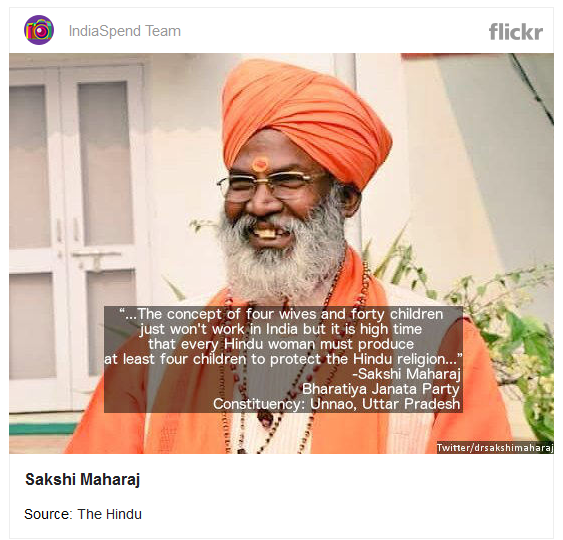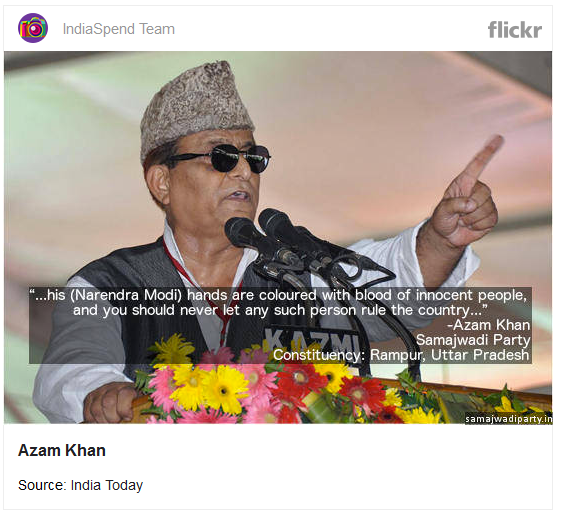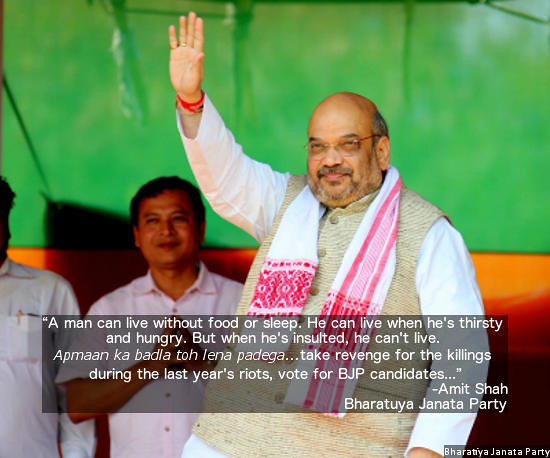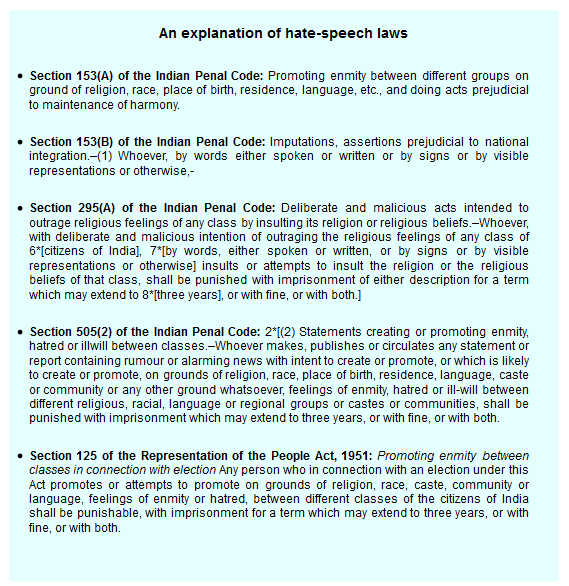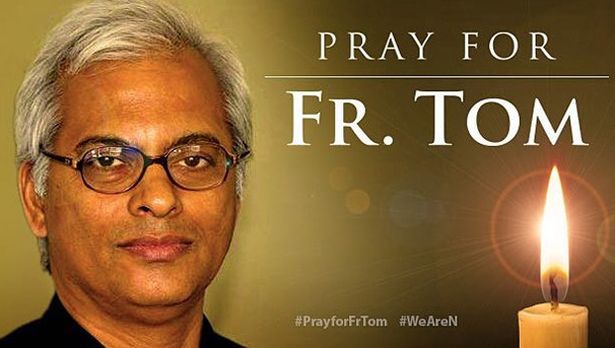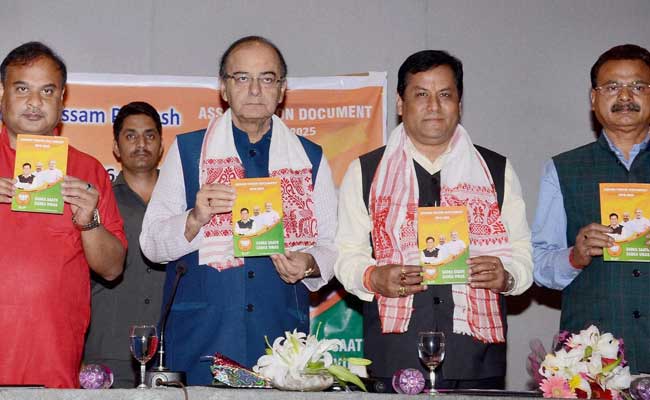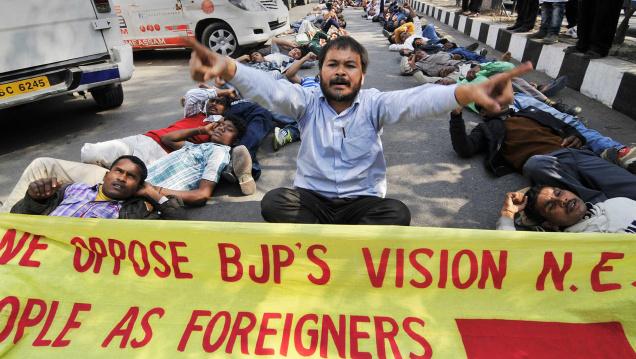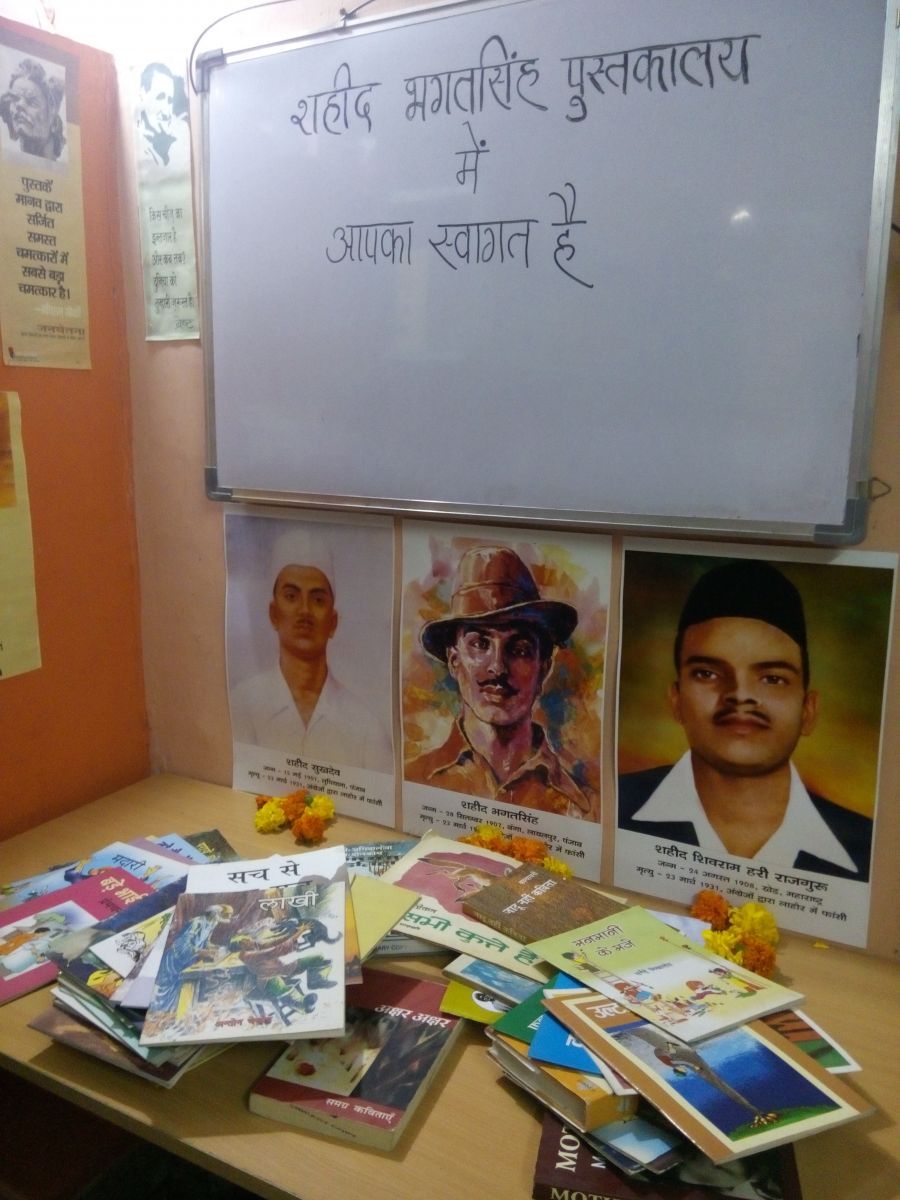Statement of Solidarity
Over 300 International by Academics, Activists, Artists and Writers stand with the University of Hyderabad (Hyderabad Central University-HCU)
We, academicians, activists, artists and writers, condemn the ongoing brutal attacks on and unlawful detention of peacefully protesting faculty and students at the University of Hyderabad by the
University administration and the police. We also condemn the restriction of access to basic necessities such as water and food on campus.
The students and faculty members of the University of Hyderabad were protesting the reinstatement of Dr. Appa Rao Podile as the Vice-Chancellor despite the ongoing judicial enquiry against him related to the circumstances leading to the death of the alit student Rohith Vemula on January 17, 2016.
Students and faculty members of the university community are concerned that this may provide him the opportunity to tamper with evidence and to influence witnesses. Suicides by Dalit students have been recurring in the University of Hyderabad and other campuses across the country. The issue spiraled into a nationwide students’ protest with the death of the Dalit scholar Rohith Vemula. The protests have pushed into the foreground public discussion and debate on the persistence of caste-based discrimination in educational institutions, and surveillance and suppression of dissent and intellectual debate in university spaces.
Since the morning of March 22 when Dr. Appa Rao returned to campus, the students and staff have been in a siege-like situation. The peacefully protesting staff and students were brutally lathi-charged by the police, and 27 people were taken into custody. The 27 detainees were untraceable for 48 hours, brutally tortured, and denied legal access. In short, all legal procedures of detention have been suspended. After the incident, the university has been locked down with no access to food, water, electricity, and Internet connectivity.
Students were brutally assaulted when they opened community kitchens. Lawyers and members of human rights organization as well the ordinary citizens of the city were denied access to students. University of Hyderabad is one of India’s biggest public universities.
We have followed, with deep concern, similar violent attacks and undemocratic crackdown on students on the campuses of Jawaharlal Nehru University, the Film and Television Institute of India, the University of Allahabad, Jadavpur University, Burdwan University, and others across the country. That the highest administrative authorities in the university have allowed the silencing of debate and dissent is unfortunate. We are disturbed by the pattern of growing nexus between student vigilante groups, youth wing of the ruling party, state and university authorities in colleges and university campuses across the country in order to mobilize the state machinery against vulnerable students. This has created a climate of fear and oppression in the country, and continually violates fundamental human and Constitutional rights of students.
We stand in support of the protesting students, staff and faculty of the University of Hyderabad and demand the following:
— Immediate withdrawal of police from the campus.
— Immediate release of, and withdrawal of all cases against, all arrested students and faculty.
— Suspension of the Vice-Chancellor P. Appa Rao.
— Judicial enquiry into the role of the HRD Ministry, the HRD Minister and Mr. Bandaru Dattatreya in inciting violence against Dalits on campus.
— Independent enquiry into the incidents of violence on the campus including the role of the ABVP in vandalising the Vice-Chancellor’s office.
— Action against police personnel named by students in their complaints.
— Passage of the “Rohith Act” against caste discrimination in education.
Signatories:
Lawrence Cohen, Director, Institute for South Asia Studies, University of California, Berkeley
Navtej K Purewal Deputy Director, South Asia Institute SOAS University of London
Akhil Gupta, Director, Center for India and South Asia (CISA), UCLA
Michael Davis, Professor Emeritus, Department of Creative Writing, University of California Riverside
Anuradha Mittal, Executive Director, The Oakland Institute
Barbara Harriss-White, Oxford University
Kavita Krishnan, Secretary AIPWA
Gayatri Chakravorty Spivak, University Professor in the Humanities, Columbia University
G. Arunima, Professor and Chair, Centre for Women’s Studies, School of Social Sciences, JNU
Sandeep Pandey, former Visiting Faculty, IIT, BHU, Varanasi
Michael D. Yates, Professor Emeritus, University of Pittsburgh, United States
Abha Sur, Massachusetts Institute of Technology
Akeel Bilgrami, Sidney Morgenbesser Professor of Philosophy, Columbia University
Haroon Akram-Lodhi, Chair, Department of International Development Studies, Trent University, Canada
Apoorvanand, University of Delhi
Marjorie Griffin Cohen, Professor of Political Science and Chair of Women’s Studies Department, Simon Fraser University, Canada
Gerald Epstein, Professor of Economics, University of Massachusetts, Amherst
Surinder S. Jodhka, Jawaharlal Nehru University
Chandra Talpade Mohanty, Syracuse University
Sangeeta Kamat, University of Massachusetts, Amherst
Dr. Shailaja Paik, University of Cincinnati
Kevin B. Anderson, Professor of Sociology, University of California Santa Barbara
Tithi Bhattacharya, Professor of History, Purdue University
Pranav Jani, The Ohio State University
Vinay Gidwani, University of Minnesota
Nivedita Menon, Professor, Jawaharlal Nehru University
Alpa Shah, London School of Economics
Jayati Ghosh, Jawaharlal Nehru University
Srirupa Roy, University of Göttingen, Germany
Rahul Varman, IIT Kanpur
Ashwini Tambe, University of Maryland, College Park
Jens Lerche, SOAS, University of London
Gillian Hart, Professor, University of California, Berkeley
Adrian Wilson, Social Anthropology, London School of Economics
Ayesha Kidwai, Professor ,Jawaharlal Nehru University
Meher Engineer
Aishwary Kumar, School of Humanities & Sciences, Stanford University
Ajantha Subramanian, Professor of Anthropology and South Asian Studies, Harvard University
Jyoti Puri, Chair and Professor of Sociology, Simmons College
Abdul JanMohamed, Professor, University of California, Berkeley
Dr. Nathaniel Roberts, Max Planck Institute for the Study of Religious and Ethnic Diversity, Goettingen, Germany
Paula Chakravartty, New York University
Atul Sood, Professor, Jawaharlal Nehru University
Prof. Mohan Rao, Jawaharlal Nehru University
Yasmin Saikia, Professor of History, Arizona State University
Nandini Chandra, Delhi University
Elisabeth Weber, Professor, University of California, Santa Barbara
C. P. Chandrasekhar, Jawaharlal Nehru University
Prof. Rupa Viswanath, University of Goettingen, Germany
Rama Baru, Jawaharlal Nehru University
Svati Shah, University of Massachusetts, Amherst
Immanuel Ness, Professor, City University of New York
Balmurli Natrajan, William Paterson University
Veena Hariharan, School of Arts and Aesthetics, Jawaharlal Nehru University
Rajat Datta, Professor, Centre for Historical Studies, Jawaharlal Nehru University
Geraldine Forbes, Professor, State University of New York, Oswego
Joya Misra, Professor of Sociology and Public Policy, University of Massachusetts, Amherst
Richard Seymour, London School of Economics
Susan Visvanathan, Professor of Sociology, Jawaharlal Nehru University
Dr. Pérez de Mendiola, Richard Armour Professor of Modern Languages, Chair, Dept. of Latin American, Caribbean and Spanish Literatures and Cultures & Humanities, Scripps College
Peter Spiegler, Asst. Prof., Dept. of Economics, UMass, Amherst
Swati Birla, University of Massachusetts, Amherst
Atreyi Dasgupta, Baylor College of Medicine
Kuver Sinha, Syracuse University
Sirisha Naidu, Wright State University
Siddhartha Mitra, Programmer, Rockefeller University
Samantha Agarwal, PhD Candidate, Johns Hopkins University
Anup Gampa, PhD Candidate, University of Virginia
Anu Mandavilli, Friends of South Asia
Deepankar Basu, University of Massachusetts, Amherst
Nandini Dhar, Assistant Professor, Florida International University
Michael Levien, Assistant Professor, Johns Hopkins University
Devika Dutt, University of Massachusetts, Amherst
Smita Ramnarain, Assistant Professor of Economics, Siena College
Taki Manolakos, Wright State University
Valentina Dallona, Johns Hopkins University
Iveta Jusova, Carleton College, USA
Aditi Chandra, University of California, Merced
Hee-Young Shin, Wright State University
Anjali Arondekar, UC Santa Cruz
Jinee Lokaneeta, Drew University
Ajay Chandra, University of Warwick
Xiao Yu, Peking University
Bettina Apthekar, UC Santa Cruz
Anirban Karak, University of Massachusetts, Amherst
Natasha S K, Syracuse University
Mitul Barua, Syracuse University
Simmy Makhijani, San Francisco State University
Sofia Gavtadze, Solidarity Network, Georgi
Avishek Konar, Alumnus, The Ohio State University
Robert Carley, Wright State University
Dia Da Costa, Associate Professor, University of Alberta
Ann Smock, University of California, Berkeley
Liz Mount, Syracuse University
Terese V Gagnon, Syracuse University
Giorgi Kobakhidze, Ilia State University, Tbilisi, Georgia
Levin Ahmed, Jawaharlal Nehru University
Christos Mais, Universiteit Leiden
Taveeshi Singh, Syracuse University
Aniruddha Das, Columbia University
Safar Safqat, St Mary’s College of Maryland
Ramaa Vasudevan, Colorado State University
Osman Keshawarz, doctoral student, University of Massachusetts at Amherst
Narendra Subramaniam, McGill University
Ammel Sharon, University of Pennsylvania
Gventa Gventsadze
Borisi Cirekidze
Minakshi Menon, Max Planck Institute, Berlin
Dmitri Khuskivadze
Salo Kaladze
Judith Rodenbeck, UC Riverside
Ashok Prasad, Colorado State University
Priyanka Srivastava, University of Massachusetts, Amherst
Arani Roy, Brandeis University
Dag Erik Berg, University of Gottingen, Germany
Rahul Nair, Antioch College, USA
Gajendran Ayyathurai, Goettingen University, Germany
Balaji Narasimhan, William Paterson University, United States
Ember Skye Kanelee, University of Massachusetts, Amherst
Jungyeon Suh, Independent Researcher, United States
Kannan Srinivasan
Roli Verma, University of New Mexico
Piya Chatterjee, Scripps College, US
Lalit Batra, University of Minnesota
Avanti Mukherjee, University of Massachusetts, Amherst
Tyler Hansen, University of Massachusetts, Amherst
Subho Basu, McGill University, Canada
Laurie Nisonoff, Hampshire College, United States
Satya Mohapatra, MIT
Julia Corwin, University of Minnesota
Parama Roy, UC Davis
Noeleen McIlvenna, Wright State University
Daniel Thompson, Johns Hopkins University
Jesse Knutson, University of Hawaii, Manoa
Prashant Keshavmurthy, McGill University, Canada
Anasuya Sengupta, Berkeley, USA
Uditi Sen, Hampshire College
Zarrina Juraqulova, Denison University, USA
Kiran Asher, University of Massachusetts, Amherst
Prakash Kashwan, University of Connecticut, Storrs
Hamid Rezai, Pitzer College, USA
Anindya Dey, Rutgers, The State University of New Jersey
Lara Deeb, Scripps College, USA
Richa Nagar, University of Minnesota
Vatsal Naresh, Columbia University
Niharika Yadav, Princeton University
Bedatri Datta Choudhury, NYU
Sanjiv Gupta, University of Massachusetts, Amherst
Suvadip Sinha, University of Minnesota
Ipsita Mandal, Perimeter Institute, Canada
Poulomi Pal, Fulbright scholar
Asmita Rangari, Activist, New Delhi
Shipra Nigam, Activist, New Delhi
Srinivas Lankala, Independent media scholar, Hyderabad
Carolyn Elliott, University of Vermont
Aviroop Sengupta, Columbia University
Madhura Lohokare, Syracuse University
Arijit Sen, University of Wisconsin-Milwaukee
Suyapa Portillo Villeda, Pitzer College, USA
Oishik Sircar, University of Melbourne
Arjun Bagchi, Massachusetts Institute of Technology
Greg Anderson, Ohio State University
Prarit Agarwal, Seoul National University, Korea
Sayori Ghoshal, Columbia University
Uponita Mukherjee, Columbia University
Suyapa Portillo Villeda, Pitzer College
Patricia Morton, University of California, Riverside
Sofia Checa, University of Massachusetts, Amherst
Arpan Roy, John Hopkins University
Cynthia Correa, The University of Texas at Austin
Parvathy Binoy, Syracuse University, Syracuse
Jonathon Hurd, RN, Seattle
Varuni Bhatia, University of Michigan, Ann Arbor
Erin McElroy, UCSC, Director, Anti-Eviction Mapping Project
Geert Dhondt, John Jay College, The City University of New York
Mithun Bhowmick, University of Illinois at Urbana-Champaign
Alladi Sitaram, Retired Professor, Indian Statistical Institute
Dr Kasturi Ray, San Francisco State University
Alicia Giron, National University of Mexico
Probal Dasgupta, Indian Statistical Institute
Larry Halpern, Wittenberg University
Suchitra Mathur, Faculty, IIT Kanpur, India
Aditi Saraf, Johns Hopkins University
Ketaki Jaywant, University of Minnesota
Nagesh Rao, Colgate University
Irfan Ahmad, ACU Melbourne, Australia
Suvrat Raju, TIFR
Saikat Ghosh, IIT Kanpur
Samyak Ghosh, Columbia University
Catherine Liu, UC Irvine
Francis Cody, University of Toronto
Bhavani Raman, University of Toronto
Erika Suderburg, University of California Riverside
Saptarshi Mandal, Assistant Professor, Jindal Global Law School, Sonipat
Anannya Bohidar, Graduate Student, South Asia Studies, UPenn
Rahul Pandey, visiting faculty, IIM Lucknow
Tania Bhattacharyya, Columbia University
Aditi Sarkar, Architect, Las Cruces, New Mexico
Shakti Sathish Nambiar, Melbourne Law School, University of Melbourne
Krishna Melnattur, Washington University School of Medicine
Rupal Oza, Hunter College, City University of New York
Maroona Murmu, Assistant Professor, Jadavpur University
Gayatri Chatterjee, Symbiosis School of Liberal Art
Sipra Mukherjee, Professor, West Bengal State University
Raja Swamy, Asst. Prof., Dept. of Anthropology, University of Tennessee
Anandavardhanan, Department of Mathematics, IIT Bombay
Priyanka Bhattacharya, The Doon School, Dehradun
Anuradha Roy, Jadavpur University
Ramesh Sreekantan, Statistics and Mathematics Unit Indian Statistical Institute, Bangalore.
Srinath Jagannathan, Indian Institute of Management Indore
Tanima Sharma, PhD student, University of Chicago
Meena Alexander, City University of New York
Sharmila Sreekumar, IIT Bombay
Venkatesh K Subramanian, IIT Kanpur
Food Sovereignty Alliance, India
The Ghadar Alliance, US
Nandita Narain, St.Stephen’s College, Delhi University
Deepa Kurup, University of Oxford
Ramesh Bairy, IIT Bombay
Papori Bora, Jawaharlal Nehru University
Ritwik Balo
Ranjani Mazumdar, School of Arts and Aesthetics, Jawaharlal Nehru University
PK Vijayan
Dr. Papia Sengupta, CPS/SSS
Krishna V V, CSSP/SSS
A.K. Ramakrishnan, Professor, Jawaharlal Nehru University
Arunima S Mukherjee
George Chkhaidze
Elizabeth Abel
Dr. Kochurani Abraham, Kerala
Saumyajit Bhattacharya
Pradip Datta, Jawaharlal Nehru University
Rohit Azad, Center for Economic Studies and Planning, Jawaharlal Nehru University
Deepak K Mishra, Jawaharlal Nehru University
Tulay Atay–Avsar, Mustafa Kemal University, Turkey
Dr. Vikas Bajpai, Jawaharlal Nehru University
Saradindu Bhaduri, Jawaharlal Nehru University New Delhi and ISS, The Hague
Dr Erica Wald, Goldsmiths, University of London
Navaneetha Mokkil
Manidipa Sen, Jawaharlal Nehru University
Ameet Parameswaran, Jawaharlal Nehru University
K. B. Usha, Jawaharlal Nehru University
Gopinath Ravindran
Avinash Kumar, CISLS, SSS, Jawaharlal Nehru University
Puja Rani, University of Delhi
Ritoo Jerath, Jawaharlal Nehru University
Hannah Carlan, Department of Anthropology, UCLA
Ganga Bhavani Manthini
Sucharita Sen, Professor, Jawaharlal Nehru University
Dr. Mallarika Sinha Roy, Centre for Women’s Studies, Jawaharlal Nehru University
Archana Prasad, Jawaharlal Nehru University
Dinesh Abrol, Institute for Studies in Industrial Development.
Vikas Rawal, Professor, Centre for Economic Studies and Planning, Jawaharlal Nehru University
Sanjaya Kumar Bohidar, Shri Ram College of Commerce, Delhi University
Simona Sawhney, IIT Delhi
Dr Debjani Sengupta, Indraprastha College for Women, University of Delhi
Anirban Gupta-Nigam, University of California, Irvine
Nandita Badami, University of California, Irvine
Sneha Gaddam, PhD Candidate, University of Leicester
Prabhu Mohapatra Department of History Univ of Delhi
Farida Khan, Univ. of Wisconsin Parkside
Pankaj Mehta, Dept. of Physics, Boston University
Tista Bagchi, University of Delhi
Ra Ravishankar, Bangalore
Sambuddha Chaudhuri, University of Pennsylvania
Ani Maitra, Colgate University
Ethel Brooks, Assoc. Prof., Dept. of Women’s and Gender Studies and Sociology, Rutgers University
Abha Dev Habib, Miranda House, University of Delhi
Surajit Mazumdar, Center for Economic Studies and Planning, School of Social Sciences, Jawaharlal Nehru University
Sonajharia Minz, Professor, School of Computer & Systems Sciences, JNU
Vinay Kumar Ambedkar
Naveen Gaur, Associate Professor, Dyal Singh College, University of Delhi
Margot Weiss, Wesleyan University
Vivekananda Mukherjee, Professor, Dept. of Economics, Jadavpur University
Dr Shakira Hussein, National Centre of Excellence for Islamic Studies, Asia Institute, University of Melbourne
Udaya Kumar, Professor, CES, School of Language, Literature and Culture Studies, JNU
Kriti Budhiraja, Graduate Student, University of Minnesota
Radhika Balakrishnan, Rutgers University
Seema Saha Poddar
Poulomi Saha, Assistant Professor of English, UC Berkeley
Swapnil Deshmukh, Mumbai University
Dr Lata Singh
Tyler Feaver, Wright State University
Pavithra Vasudevan, University of North Carolina-Chapel Hill
Santosh Rohit Yerrabolu, Buffalo, NY
Professor V V Krishna, Centre for Studies in Science Policy, SSS, JNU
Amy E. Alterman, Graduate Student, University of California Los Angeles
Ian Duncan, Professor of English, University of California, Berkeley
Bir singh, Asstt. Professor, Dept. of Economics, University of Delhi
Amit Singh, Postdoctoral Fellow, Northwestern University
Poonam Srivastava, University of Chicago, Postdoc Researcher
Omnia El Shakry, University of California, Davis
Jhuma Sen, O.P. Jindal Global University, India
Corey Payne and Chase Alston, Co-Presidents of Students for a Democratic Society (SDS), Johns Hopkins University
Sankaran Krishna, Professor, Dept. of Political Science, University of Hawaii at Manoa
Mytheli Sreenivas, Professor, Ohio State University
Preeti Shekar, Asian College of Journalism
Susan Himmelweit, Emeritus Professor of Economics, Faculty of Social Sciences, Open University, Walton Hall, UK
Kalyani Monteiro Jayasankar, Graduate Student, Princeton University
Nicolau Dols, Universitat de les Illes Balears, Spain
Kartik Misra, Graduate Student, Dept. of Economics, UMass, Amherst
Dolly Daftary, Western Michigan University, Kalamazoo, Michigan
Sugata Ray, Indian Association for the Cultivation of Science
Kunal Chattopadhyay, Professor of Comparative Literature, Jadavpur University
Soma Marik, Associate Professor of History, RKSM Vivekananda Vidyabhavan
Pratiksha Baxi, Assoc. Prof., Centre for the Study of Law and Governance, JNU

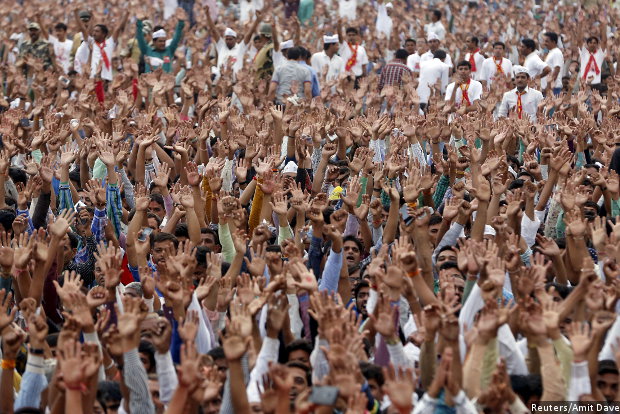
.png)


